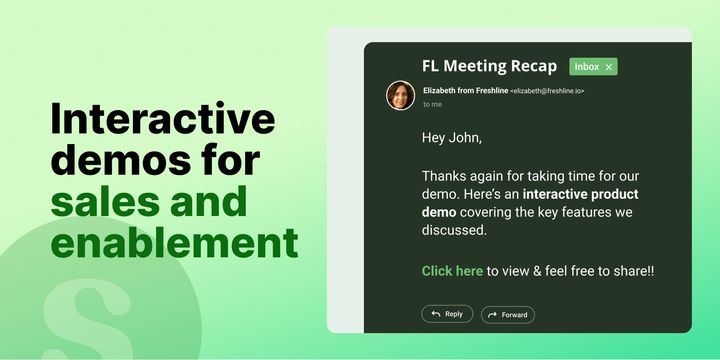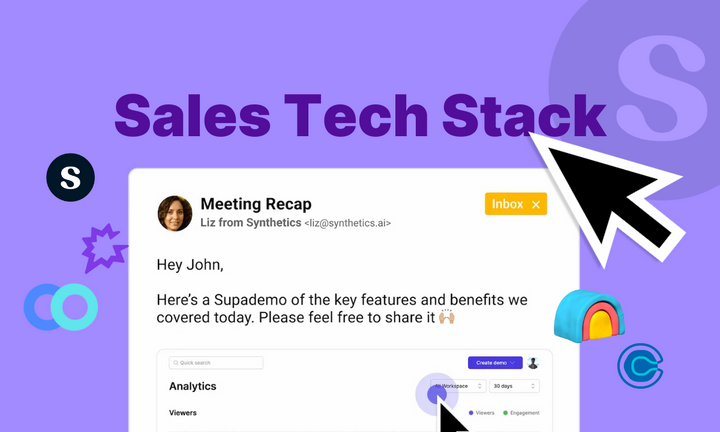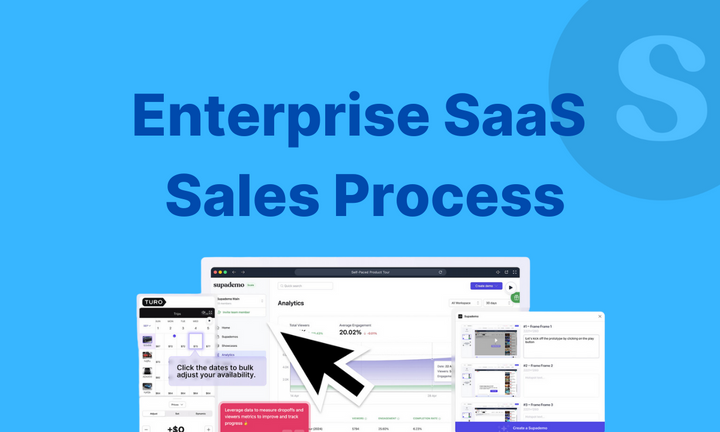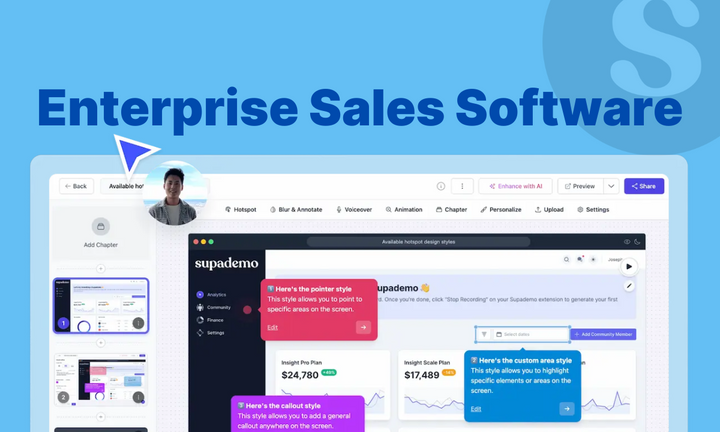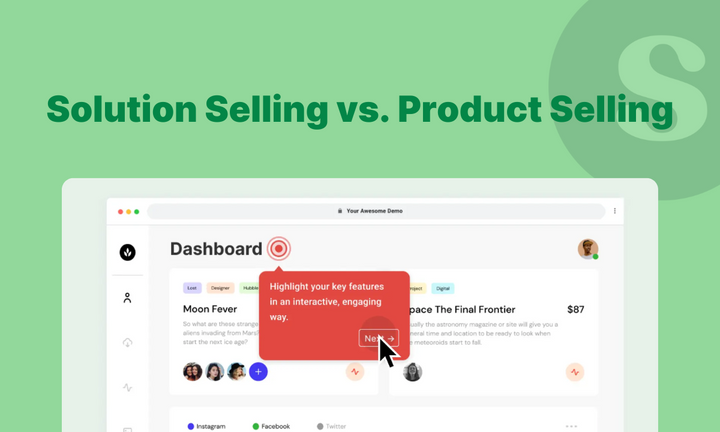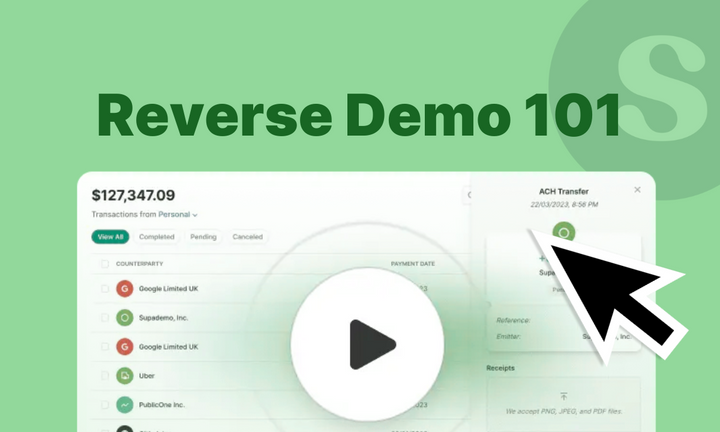As a sales professional, you need to master the skill of answering why your prospects need your product to solve their problems. This is key to qualifying more leads and converting them into paid customers.
And in SaaS, your product demos are crucial in answering that WHY. An effective product demo helps address the buyer’s key pain points, resolve doubts, and demonstrate the core values of your offering.
But in order for them to realize this, buyers need to see the tool in action – ideally more than once and on-demand – before they go ahead and swipe their card. Hence, it's imperative to allow buyers to explore the core benefits of your product before a subscription paywall. Luckily, interactive demos are a perfect use case to fill this void.
What are interactive product demos?
Interactive product demos offer an immersive and self-paced experience of your product's features and use cases. Just like you would explore and try on clothes in a clothing store before buying them, interactive demos create a virtual showroom of your products for your buyers.
Your prospective leads can explore, interact, and navigate the product without being paywalled by a subscription or booking a demo call.
Interesting right?
Not only this, as prospects experience the product beforehand, they build more trust – which is crucial in the early stages of discovery. The more trust you build, the increased adoption of your products.
Here's an example of how product demos create an interactive user experience:
3 use cases of interactive demos for sales
Now that you've nailed the basics of interactive demos, let's look at how you can take advantage of interactive demos to boost sales:
1. Lead generation: Build a solid database of highly qualified leads
Imagine this: You researched your buyer's pain points and have developed a solid list of leads to reach out to.
Instead of adding your product's demo video or images of various features, you shared an interactive demo link. But not just your product's demo, but a step-by-step demo of a specific feature that ties to the recipient's pain point.
There is a dramatically higher chance that you will hear back from those recipients.
Why? Because you didn't:
- Ask them ask them to fill out a long form or book a discovery call
- Ask them to share their credit card details to start a free trial
- Ask them to go through landing pages or read help guides
But, you:
- Showed them features and benefits tied to their pain point
- Showed them the product in action without any pre-conditions
- Let them play around at their own pace and build familiarity with the tool
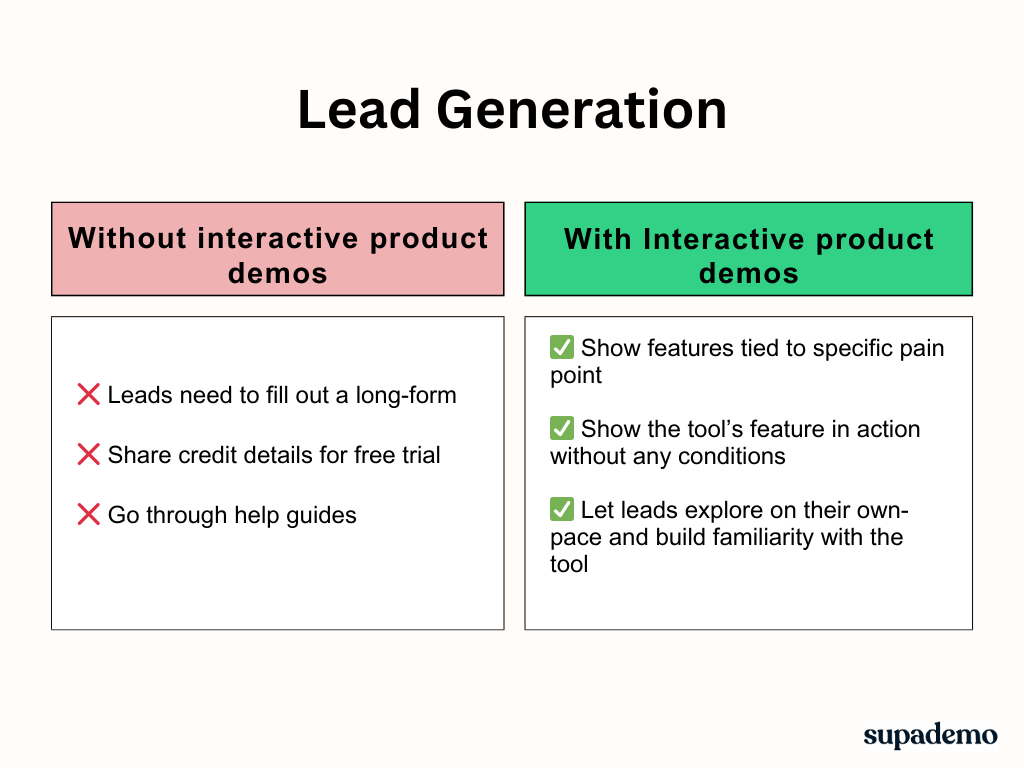
This kind of hands-on experience allowed potential customers to immediately understand how the software worked and what problems it could solve for them in a way that words or static images never could. Dmitriy Bobriakov, Marketing Manager – RealEstateU
And the Results? You increase your lead generation numbers, and there is also a higher chance the majority of these leads will be highly qualified.
- Build trust with prospective leads
- Generate more highly qualified leads
2. Lead nurturing: Share personalized product demos
In sales, even though you have a database of high-intent leads, it doesn't mean they will buy right away. In fact, there may be leads who:
- Are still skeptical about buying your software
- Are not fully aware of your product's potential
- Still need to make a strong case to their executives to get buy-in
It means every lead you have might be in different stages of your sales funnel. And, if you go and use a one-size-fits-all approach, potential customers may feel that their specific needs and concerns are not being addressed.
Say you offer a project management tool with features like a task tracker, team collaboration, and automation. There is a high chance that a single buyer won't be using all the features.
So, they will only be interested in hearing about some of your tool's features. You'll be doing a disservice to your buyers by offering them a generic demo.
Contrast that with persona focused interactive product demos that help you personalize your messaging much more easily, helping nurture leads effectively. Instead of creating a custom video demo or a product guide, you can create snippets of your product's specific feature related to your buyer's pain point.
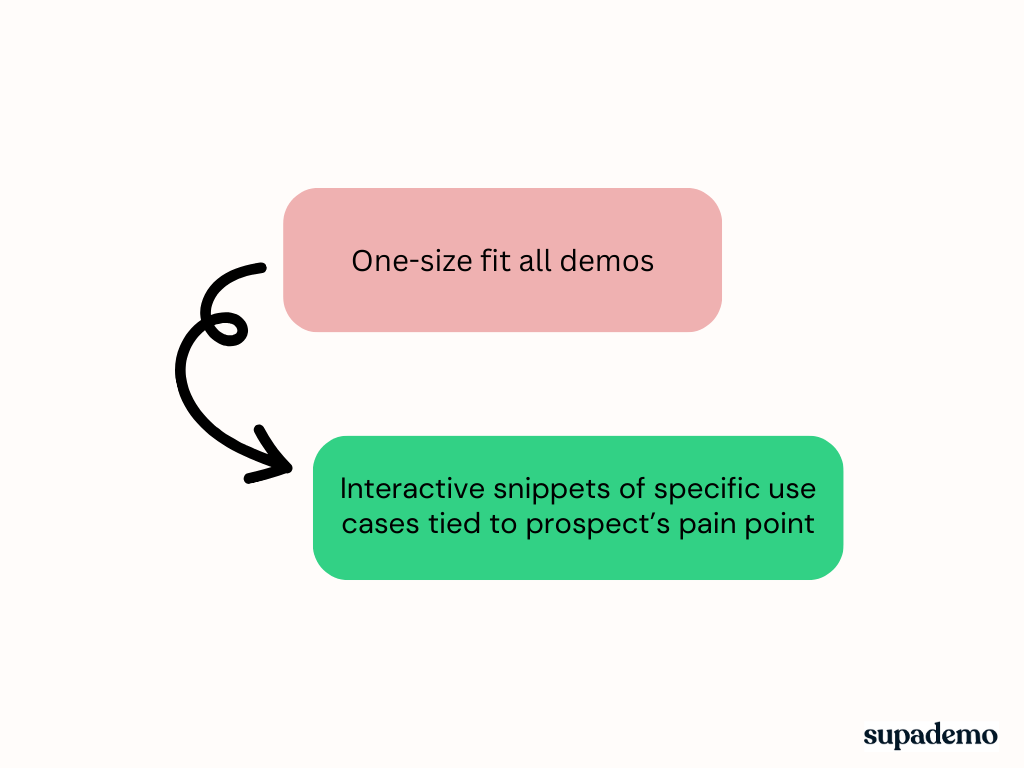
In the project management example above, you can create an interactive demo for team collaboration features instead of giving them a complete tour of the platform. Prospects who face communication and transparency issues will be more interested in those features.
Here's an example in action:
This way, when you tailor your demos to showcase pain-point-related features, you capture the buyer's attention and trigger that Aha! Moment.
- Save hours spent creating long video demos or guides
- Build trust through personalized demos
3. Post-purchase: Build loyalty and create a feedback loop
The sales funnel doesn't end when the buyer finally swipes the card. It's a starting point to building a loyal and trusted customer relationship.
Prospects become part of your product's success when they become your customer. They can help you build and strengthen your brand presence through testimonials and inbound leads. Not only this, you can also retarget these customers to upsell/cross-selling, contributing towards more revenue growth.
But sending them follow-up emails, promotional emails, or messaging doesn't cut it anymore. You need to help them unleash the potential of your product. You need to help them get better at their processes.
An interactive demo is the perfect way to do this. You can reach out to them regularly with use-case specific interactive demos, which:
- Show them less-used but powerful features to enhance their workflow
- Collect feedback for certain features by attaching a survey at the end of the demo
- Share behind the scenes of the product's features they requested
Sharing such a demo will help them get the most out of your product. And as they continue to see more value out of your product, they will be less likely to churn – leading to higher retention and decreased churn.
- Higher customer retention through better retargeting
- Increased customer loyalty
Build your first interactive product demo
It's time to make your sales process time-efficient and more frictionless. Interactive demos are the emerging tech to help you with that.
By letting your leads get a sneak peek into your product's functionality, you strengthen trust, which is paramount in the initial stages of the sales process.
And we've got the right solution for you.
Supademo is a no-code platform to help you create engaging interactive demos. With our AI assistant, demo creation is 10x easier and faster.
But don't take our words – Juan is one of 10,000 happy users who leverage Supademo for multiple use cases:
Supademo helps us explain with great clarity the value and features of our product. Marketing Analytics and reporting products are often hard to explain (and differentiate). There's no copy better than a Supademo explaining a complex process or example. - Juan, Founder and CEO, Porter Metrics


